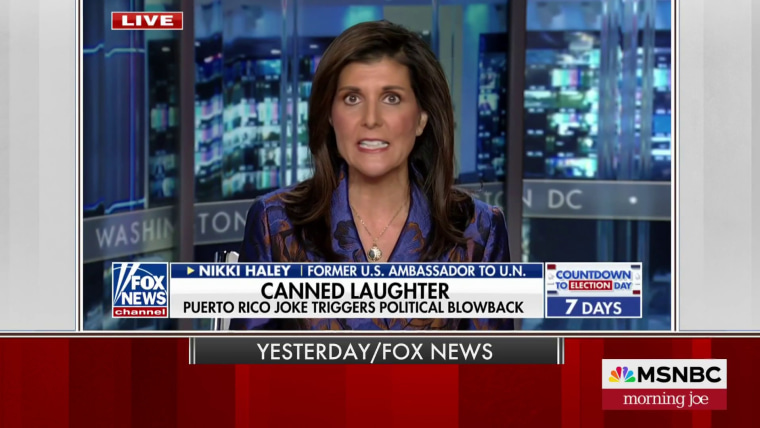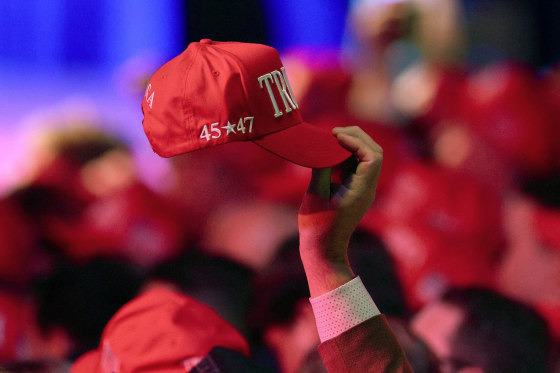It’s hard to know what feels worse: Trump’s shocking 2016 win, which came at the expense of a highly qualified woman whose path to the White House seemed preordained, or his 2024 victory, which in hindsight feels predictable. This time, the nation has already seen what a Trump presidency can do, from failing to react quickly to the Covid pandemic to behaving so egregiously he was impeached by the Senate (twice), to separating distraught children from their parents at the border, to blocking refugees based on their religion. Trump is one of the singularly worst presidents to ever occupy the Oval Office. And American voters just put him back in it.
One clue for how and why this happened, at least in part, may have come from conservative commentator Ryan Girdusky, who was banned from appearing on CNN after he hurled a racist quip at journalist Mehdi Hasan. Last Tuesday, Girdusky opined that the election would be a “middle finger” aimed at the “people who talk down to you.”
“This is the day you get to throw a human Molotov cocktail,” he told “Real America’s Voice News. “And his name is Donald Trump.”
And arsonists across the nation seem to have complied.
Trump has now run three times as the candidate of rage and grievance. In 2020, enough voters were tired of the schtick. But after four years of a fairly innocuous Joe Biden administration, his appeal has somehow expanded. There are a lot of reasons voters tell pollsters that they back Trump: the economy, immigration, crime. But what if a good number of Trump’s fans are simply chaos voters? They may not feel horribly mistreated so much as they resent what they perceive as the better treatment accorded to people they don’t think deserve it. These voters wouldn't be turned off by Trump’s aggression and his threats because his brash rhetoric is part of the appeal.
I'm obviously not describing every person who cast a ballot for the Trump-Vance ticket. But Trump’s four years in office were incredibly divisive and ugly. Unlike in 2016, those who put him back in office this week know what they’re getting. A large share of these voters do not seem to have been persuaded by appeals to American democratic traditions and the maintenance of democracy itself. Among voters who put “the state of democracy” as their top issue in this election, 80% voted for Vice President Kamala Harris, according to NBC's exit polling. But Harris and Trump voters were also about equally likely to say that democracy was threatened: Nearly three-quarters of voters said as much, and their votes were divided almost evenly between Trump and Harris. These Trump voters, in other words, seem to believe that their candidate not only poses no real threat to democracy, but may be the man to protect it.
These Trump voters seem to believe that their candidate not only poses no real threat to democracy, but may be the man to protect it.
It's important to also remember that autocrats are not always installed against the will of the people. Many initially win popular elections, and then use their power to undo democratic norms (see, for example, Vladimir Putin in Russia, Recep Erdoğan in Turkey, Viktor Orbán in Hungary, and Hugo Chávez in Venezuela, among others). And many autocrats enjoy widespread support, at least for a while. Both Italy’s Benito Mussolini and Spain’s Francisco Franco were initially popular figures, and Franco remains admired by many right-wing Spaniards.
Formal democratic systems that prioritize fairness, power-sharing and compromise — that protect the rights of minorities and the vulnerable — are relatively new in the sweep of human history and are often fairly unpopular. Democracy, and the compromise and power-sharing it requires, is hard — something Harris supporters are no doubt feeling today.
So while I believe Harris was right, like presidents Joe Biden and Bill Clinton before her, to emphasize the threat that Trump posed to democracy, his promise to break the system in favor of his favored groups is part of his popularity. A lack of election integrity, Trump and his fans argued, was the real threat to democracy, and they insisted that America’s electoral system was fatally flawed. Notice now, the silence from these same conservatives.
The term “bull in a china shop” comes up a lot when voters talk about Trump, and his team even campaigned on that reputation in 2020. His supporters mean it as a compliment: They want to see him break what so many of us find precious.
As predicted, the gender gap in this election was significant, with 53% of women and 42% of men voting for Harris, according to NBC's exit polls. The combination of gender and education made for an even larger contrast: 57% of white college-educated women and 65% of college-educated voters of color cast their ballots of Harris, while fewer than 30% of non-college white men did. Yes, millions of women voted for Trump. But the majority didn’t. They have already lived in Trump’s proverbial china shop — and did not find it enjoyable.

But if you’re the kind of person who likes breaking things — or to return to the Girdusky metaphor, who likes to watch things burn — then the suffering of those you deem unworthy is more appealing than appalling; maybe it’s even exciting. Indeed, Trump's final campaign events seemed increasingly mean-spirited. While Harris surrounded herself with surrogates like Beyoncé and Taylor Swift and struck a tone of optimism, Trump relied on male celebrities and subcultures that emphasize a specific kind of macho masculinity: Hulk Hogan, Dana White, Joe Rogan and Elon Musk.
Trump and his supporters’ rhetoric also seems to have appealed to those who have historically demanded quick and sometimes revolutionary change: the young and the male. Younger men broke for Trump by a clear margin. Although nearly 60% of Latinos over 65 voted for Harris, the younger vote was nearly evenly split. Among Black voters, more than 90% of those over 65 voted for Harris, but her support declined by roughly ten points among Black voters under 65. And across all racial groups, the gender gap between male and female Trump voters was notable: Seven points among White voters, 14 points among Black voters, and 17 points among Latino voters.
As Election Day drew closer, it remained to be seen whether the men Trump catered to would actually show up at the polls. After all, women are more likely to vote than men, and people who are dissatisfied and disillusioned often opt out of political participation all together. It seems we got our answer: These men (and a whole lot of women too) showed up — and they torched the place.
